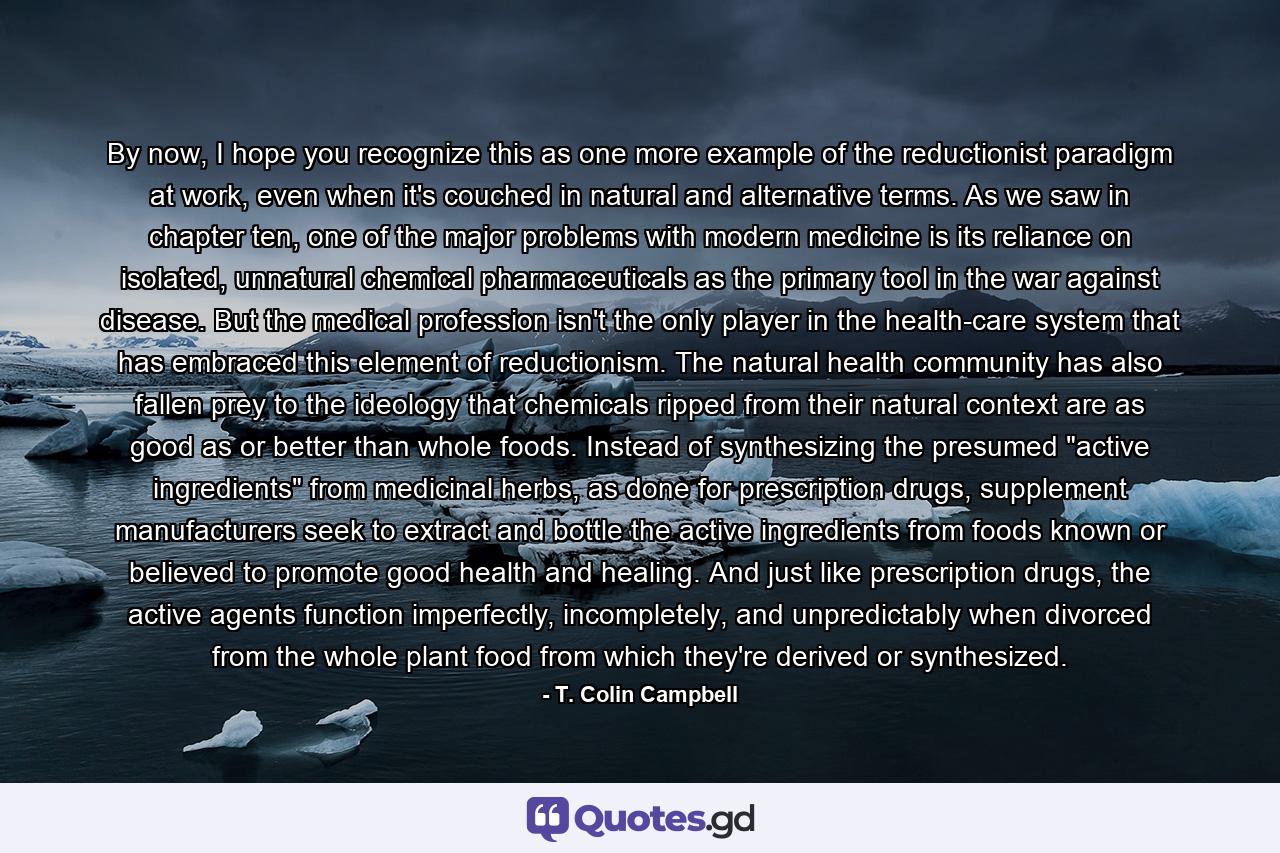By now, I hope you recognize this as one more example of the reductionist paradigm at work, even when it’s couched in natural and alternative terms. As we saw in chapter ten, one of the major problems with modern medicine is its reliance on isolated, unnatural chemical pharmaceuticals as the primary tool in the war against disease. But the medical profession isn’t the only player in the health-care system that has embraced this element of reductionism. The natural health community has also fallen prey to the ideology that chemicals ripped from their natural context are as good as or better than whole foods. Instead of synthesizing the presumed “active ingredients” from medicinal herbs, as done for prescription drugs, supplement manufacturers seek to extract and bottle the active ingredients from foods known or believed to promote good health and healing. And just like prescription drugs, the active agents function imperfectly, incompletely, and unpredictably when divorced from the whole plant food from which they’re derived or synthesized.
